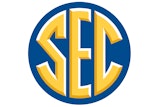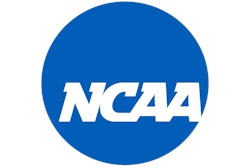
The Western Athletic Conference has announced it will rebrand to the United Athletic Conference beginning in the 2026-27 academic year, while adding five new schools to the conference.
Austin Peay, Eastern Kentucky, North Alabama, West Georgia and Central Arkansas will officially join the UAC on July 1, 2026, alongside ACU, Tarleton State and UT Arlington. The rebranding of the WAC to the UAC will also take place in the summer of 2026.
The UAC and Atlantic Sun Conference (ASUN) are forming a strategic alliance that they hope will strengthen and provide long-term stability for both conferences.
According to a press release, the alliance allows two similarly situated conferences to resolve many challenges at once: better aligning membership; reducing expenses; collectively leveraging assets, such as media rights; providing members of both leagues with nonconference games against regional opponents; and situating both conferences for streamlined decision making.
The UAC and ASUN will remain separate conferences, maintain independent governance structures and offices, and have their own automatic qualifying bids to the NCAA postseason for conference champions. Each will consider limited expansion opportunities in the future.
ASUN commissioner Jeff Bacon will serve as the executive director of the alliance between the UAC and ASUN. Bacon has served as executive director of the current UAC, a football-only conference consisting of nine teams from the WAC and ASUN. WAC commissioner Rebekah Ray will also assume a leadership role in the alliance.
“We are proud to launch this innovative Division I conference alliance, creating an environment where institutions can elevate their programs, leverage collective resources, and champion a new era of intercollegiate athletics,” Bacon said. “This strategic alliance reflects our dedication to empowering the next generation of leaders, both on and off the field, ensuring a legacy of success and impact for years to come.”
All of ACU's 15 athletic programs will be housed in the UAC. In football, ACU will continue to compete with Tarleton State, Austin Peay, Eastern Kentucky, North Alabama, Central Arkansas and West Georgia. All seven teams are current members of the football-only UAC, and competed against each other during the 2024 season. Football-playing members of the WAC and ASUN have competed in a formal partnership since 2021.
Key Aspects of the Alliance:
- WAC Rebranding and Membership Realignment: The WAC will rebrand as the United Athletic Conference (UAC) in July 2026, with intended membership of eight (8) institutions including Abilene Christian University, Austin Peay State University, the University of Central Arkansas, Eastern Kentucky University, the University of North Alabama, Tarleton State University, the University of Texas at Arlington, and the University of West Georgia. The ASUN will maintain a roster of seven (7) members: Bellarmine University, Florida Gulf Coast University, Jacksonville University, Lipscomb University, the University of North Florida, Queens University of Charlotte, and Stetson University.
- Independent Operation with Shared Efficiencies: While both the ASUN and the newly branded UAC will retain their independent conference structures and automatic qualifiers to NCAA championships, they will partner within a broadly defined consortium. This consortium will facilitate collaborative scheduling, the leveraging of collective assets, and the exploration of various shared operational efficiencies designed to benefit all member institutions.
- Optimized Geographic Footprint: The alliance strengthens the geographic footprint for both conferences, ensuring that student-athletes continue to benefit from extensive competition opportunities.
“The alliance could not have been achieved without the unwavering leadership and commitment of the fifteen university presidents involved, to whom I extend my profound gratitude,” Bacon said. “I am tremendously proud to be a part of this historic moment, and I eagerly anticipate the future that lies before us.”





































